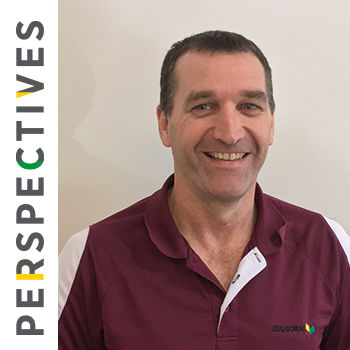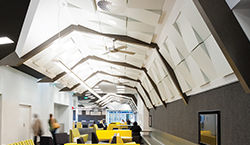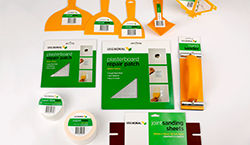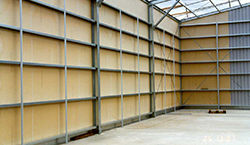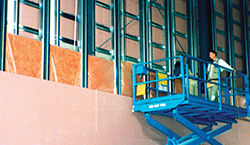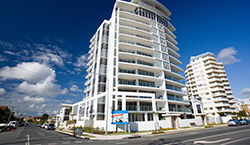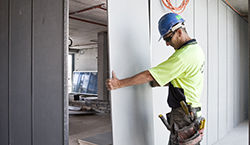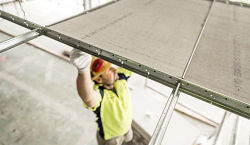-
AUSTRALIA, ENGLISH
- Contact
- Where to Buy
- Favourites
-
Looking for product documents?
Try our Document Finder
-
About Knauf
-
About Knauf
-
About Us
-
About Us
-
-
Board Of Directors
-
Board Of Directors
- Jennifer Scanlon, Chairman, USG Boral; Executive Vice President; President, International; President L&W Supply Corporation at USG
- James S. Metcalf, Chairman, President and Chief Executive Officer, USG Corporation
- Mike Kane, Chief Executive Officer and Managing Director, Boral Limited
- Al Borm, President & CEO, Boral Industries Inc
- Rosaline (Ros) Ng, Chief Financial Officer, Boral Limited
-
See All
-
-
Blog
-
Blog
- USG Boral presents ASONA at the Design Speaks Old School/New School Event
- USG Boral Partiwall® the acoustically sound and flexible partition wall system
- Architects’ perspective on USG Boral Ensemble™
- Achieving an acoustic ceiling with a monolithic look is now easy
- PERSPECTIVES: Retiring industry legend not planning to lay down his trowel
-
See All
-
- Careers
-
Contact Us
-
Contact Us
-
- Code Of Conduct
- Supplier Code of Conduct
-
-
Products
-
Products
-
Ceilings
-
Ceilings
- Acoustic Panels & Ceiling Tiles
ACOUSTIC PANELS & CEILING TILES
- Acoustic Suspension Systems
ACOUSTIC SUSPENSION SYSTEM
- Drywall Suspension Systems
DRYWALL SUSPENSION SYSTEM
- Integrated Systems
INTEGRATED SYSTEMS
- Specialty Ceilings
SPECIALTY CEILINGS
- Metal Ceilings
- Asona Acoustical Range
- ENSEMBLE™
-
-
Interior Linings
-
Interior Linings
- Standard Plasterboard
Standard Plasterboard
- SHEETROCK® Plasterboard
SHEETROCK® Plasterboard
- Technical Boards
TECHNICAL Plasterboard
- Multi-Application Boards
Multi-Application Boards
- testingMissingAltText
- testingmegamenualt2
-
-
Finishes
-
Finishes
- Jointing Compounds
Jointing Compounds
- Speciality Plasters
Specialty Plasters
- Adhesives
Adhesives
- Primers
Primers
- Sealants
Sealants
- Joint Tapes
Joint Tapes
-
-
Steel Framing
-
Steel Framing
- USG Boral Steel Stud & Track System (New Zealand)
USG Boral Steel Stud & Track System (New Zealand)
- Rondo® Metal Components
Rondo® Metal Components
-
-
Cornice
-
Cornice
- SHEETROCK® Cove
SHEETROCK® Cove
- Decorative Cornice
Decorative Cornice
-
-
Plastering DIY
-
Plastering DIY
- DIY Cornice Adhesive
DIY Cornice Adhesive
- DIY Patching Plaster
DIY Patching Plaster
- Total Joint Finish
Total Joint Finish
- Stud Adhesive
Stud Adhesive
- Tools & Accessories
Tools & Accessories
-
-
Insulation
-
Insulation
-
-
Industrial Plaster
-
Industrial Plaster
-
-
-
Solutions
-
Solutions
-
Plasterboard Systems
-
Plasterboard Systems
- Systems+
Systems+
- CinemaZone® System
CinemaZone®
- Fireclad® System
Fireclad® Fire-rated External Wall System
- Firewall® System
Firewall® System
- IntRwall® System
IntRwall® System
- Multiframe™ System
Multiframe™ System
- NeighbourZone™ System
NeighbourZone™ System
- OutRwall® System
OutRwall® System
- Partiwall® System
Partiwall® Separating Wall System
- Quiet Living™ System
Quiet Living™ System
-
-
Segment Solutions
-
Segment Solutions
- Health Care
Health Care
- Education
Education
- Bushfire Protection
Bushfire Protection
- Multi-Residential
Multi-Residential
-
-
Science
-
Science
- Acoustics
Acoustics
- Fire Performance
Fire Performance
- Seismic
Seismic
-
-
-
Inspiration
-
Inspiration
-
For Architects / Designers
-
For Architects / Designers
-
USG Boral for Architects / Designers
We believe we can change the way buildings are designed, built and occupied by delivering innovations that help you work smarter, do more and build better.
Plasterboard Installation Manual
See All
-
-
For Builders / Installers
-
For Builders / Installers
-
USG Boral for Builders / Installers
Proudly Supporting those who Build, every step of the way.
Plasterboard Installation Manual
See All
-
-
For Homeowners
-
For Homeowners
-
USG Boral for Homeowners
Our plastering products, tools & accessories are designed for the home renovator/builder making minor alterations or repairs to plasterboard walls & ceilings.
Plasterboard Installation Manual
See All
-
-
For Resellers / Distributors
-
For Resellers / Distributors
-
USG Boral for Resellers & Distributors
Our aim is to provide you solutions and make opportunities to scale your business efficiently.
Plasterboard Installation Manual
See All
-
-
-
Resources & Tools
-
Resources & Tools
- CAD Finder
- Lighting and Decoration Microsite
- Lighting & Decoration Guide
- Specialty Ceilings Design Studio
- Boral Design Lab
- Plasterboard Installation Manual
- Partiwall Estimator
-
BIMWIZARD
-
BIMWIZARD
- BIMWIZARD®
- NEW FEATURES
-
See All
-
- eSelector
-
TecASSIST
-
TecASSIST™ - USG Boral
-
-
Acoustic Ceilings e-Estimator
-
Acoustic Ceilings e-Estimator
-
-
-
What's New
-
What's New
-
News And Promotions
-
News & Promotions – USG Boral
- Holiday Trading Hours 2019/2020
- USG Boral a proud sponsor of Hoot Homes and Kylie & Jackie O’s Set You Up for Life home giveaway!
- USG Boral air-drying compounds help you avoid risk of early dry-out in hot windy dry conditions
- Labrador Trade Store Closing Down
- Competition: Your chance to win a DeWALT 5-Piece Combo Kit with WETSTOP™
-
See All
-
-
Press
-
USG Boral Press Coverage
- USG Boral Australia and New Zealand proposed to become 100% Boral-owned
- USG Boral wins Good Design Awards for design and innovation
- USG Boral advocates for healthier work sites in building and construction
- USG Boral continues to support the Royal Children's Hospital Good Friday Appeal
- BORAL AND USG BORAL SUPPORT INDIGENOUS YOUTH PROGRAM
-
See All
-
-
AUSTRALIA, ENGLISH
- Contact
- Where to Buy
- Favourites
- My Downloads
-
User Profile
User Profile
- Manage Profile
- Logout
-
Looking for product documents?
Try our Document Finder
xui3RRd85PW+7EkqtHyQYghttp://myaccount-stg.knaufapac.com -

5 minutes with our new asia-pacific manufacturing director
- Who is USG Boral?
- Blog
- PERSPECTIVES: 5 MINUTES WITH OUR NEW ASIA-PACIFIC MANUFACTURING DIRECTOR
Perspectives: 5 minutes with our new Asia-Pacific Manufacturing Director
Andrew Pittle’s long and interesting career has seen him move from electrical engineering to manufacturing management across Australia. As he takes up the role of Manufacturing Director for USG Boral’s Asia-Pacific operations, he looks back on the changes he’s seen over the years.
Having grown up in Victoria and qualifying as an electrical engineer, Andrew began his career with the State Electricity Commission of Victoria (SECV) – going on to work with a Rio Tinto mining consultancy. In 1995 he was hired by Boral Plasterboard’s Port Melbourne plant as the company’s first permanent electrical engineer – fulfilling roles previously conducted by external contractors.
“In those days our manufacturing systems were hard-wired, and Boral was looking to automate its plants with Programmable Logic Control (PLC),” Andrew says. From there, he moved through the engineering and technical stream to take roles as Electrical Project Manager, Maintenance Engineer and Production Manager.
Realising that he enjoyed Operations Management but needed to expand his knowledge base more widely, in 2001 he began an MBA at Deakin University. After a 12-month logistics role, he moved across to Boral’s small Adelaide plant as the Plant Manager. “It was a boom time in the Australian construction industry and we needed to raise our production volumes. Adelaide was a very old, low-speed plant that had been ‘mothballed’ for a couple of years. We started it up again and ran it for another two years to bridge the shortfall in capacity at the top of the building cycle.”
Andrew says that it takes around five years from concept to commissioning of an operational plant. “At the time, restarting Adelaide was our only option to keep up with market demand.”
Andrew then moved to become Manufacturing Manager at Port Melbourne. In 2006 he was Manufacturing Manager at Northgate, and then went moved into the role of Manufacturing Manager of the Company’s first Greenfield development at Pinkenba.
In 2017 he assumed the role of Australian Manufacturing Director. Over this journey, he’s worked in every one of USG Boral’s Australian plants – most recently spending time developing management staff at the Camellia factory in NSW.
SUSTAINABLE WAYS OF DOING THINGS
Andrew says that the joint venture with USG has been really good for the former Boral’s manufacturing processes. “The JV injected new technologies into our operations – and more productive and sustainable ways of doing things.”
An example is the introduction of USG’s lightweight, sag-resistant SHEETROCK® technology throughout USG Boral’s global operations. “In manufacturing terms it’s significantly reduced our carbon footprint and increased our productivity. We’re crushing less gypsum and using less water per square metre of board – so we also use less gas in the process of drying it. Once it’s manufactured, we’re also using less fossil fuel to distribute our product as we’re now able to move more board per delivery truck.”
A GLOBAL LEVEL OF ENGAGMENT
From a personal point of view, the joint venture has enabled Andrew to meet with Plant Managers throughout Asia and from the US. “Having access to USG’s technical experts has allowed us to tap into a wealth of technological development.”
The joint venture has also increased the scale of USG Boral’s regional operations – one benefit being greater investment in manufacturing employees. “We now have dedicated regional resources for manufacturing process excellence and employee technical training.”
“Our employees typically see only a small part of the plasterboard manufacturing process. We’ve been running baseline technical training programs to give them insights into the whole process from gypsum to SHEETROCK®,” Andrew says. “No-one likes being just a ‘blind’ cog in a wheel. Getting them across the end-to-end process has given them a deeper understanding of the importance of their particular role. Our employees are now more engaged as a result of this investment – I’m seeing it for myself.”
Planned future training utilising the power of Lean Six Sigma to help identify and drive out process variation is considered a key tool for delivering, high quality product – which is in turn key to building and retaining our customer base. In his new role, Andrew will see it rolled out across USG Boral operations.
See more industry perspectives in this occasional blog series.
